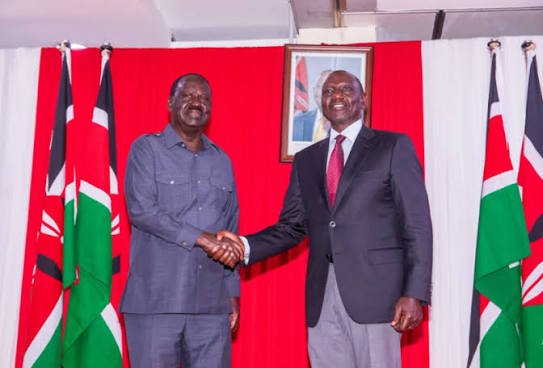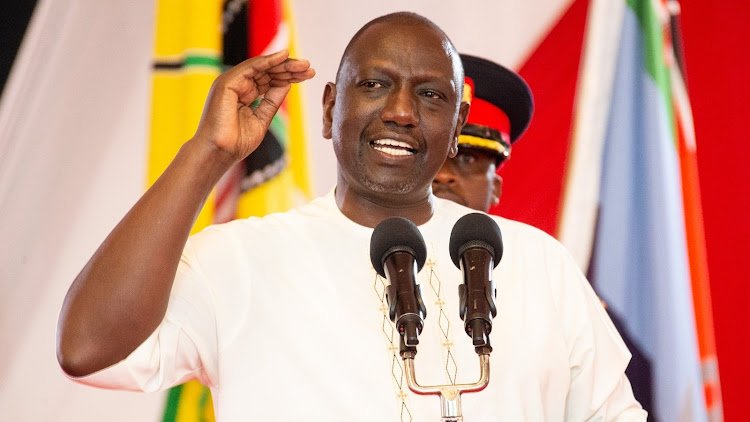
In a significant move, President William Ruto on Thursday dissolved the entire cabinet. Some of the best-performing CSes like Aden Duale (Defence), Kithure Kindiki (Interior) and Rebecca Miano (Industry) equally lost their jobs.
It was, however, not clear under the circumstances the Attorney General Justin Muturi was also dropped. Legal analysts say an AG must serve entire electoral term of 5 years with a President – save for ouster provisions under Office of Attorney General – which equally require due process unless it is a resignation.
Only Prime Cabinet Secretary and CS for Foreign and Diaspora Affairs Musalia Mudavadi was left standing.
Dr Ruto’s decision has sent shockwaves through the political landscape, marking a pivotal moment in the history of his presidency. It has equally put the more than 50 principal secretaries on notice.
President William Ruto’s decision to dissolve the cabinet is not just a political maneuver but a historical event that will be remembered for years to come.
Historically, the dissolution of a cabinet is a rare occurrence. It often signifies major administrative or political changes. Politically, it follows what analysts call as loss of public confidence.
Mwai Kibaki
The very move, 19 years ago, was undertaken by President Mwai Kibaki after the government side lost a referendum vote.
This move by President Ruto is seen by many as an effort to reset his administration and bring about needed reforms.
The need to address internal conflicts, improve governance, and respond to public demands for transparency and accountability. By dissolving the cabinet, President Ruto is aiming to build a more cohesive and efficient team to better serve the nation’s interests.
The dissolution of the cabinet brings with it a host of potential implications. On one hand, it provides an opportunity for fresh faces and new ideas to enter the administration, which could lead to improved governance and policy-making.
Implications
On the other hand, such a drastic measure could create instability and uncertainty, both within the government and among the populace.
It remains to be seen how this decision will impact the future trajectory of President Ruto’s administration and the nation’s political landscape.
Kenya’s Gen Z generation has given the President sleepless nights as it continues to demand for radical changes.
On June 25, 2024 – the #OccupyParliament made good its’ threat and burned a section of the August House – a move that sent MPs scampering for safety. Some MPs who voted for the now withdrawn Finance Bill 2024 have since either gone underground or publicly apologized to avoid reprisals from the public.
President Ruto’s new cabinet is likely to be in place in August, at the very earliest, because of the due process that involves National Assembly vetting.




